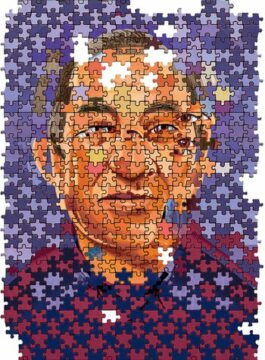Paul Hond in Columbia Magazine:
 Ping-pong is not a game that lends itself well to chatter. It demands sharp focus, quick reflexes, and a light touch, and the dozen players who have gathered this Monday afternoon at PingPod, a table-tennis venue on West 99th Street, are locked in the wordless rhythms of the back-and-forth. Aside from the occasional “Nice spin!” or grunt of self-reproach, the room is filled with the hollow percussion of little white balls glancing off paddles, skipping over the tops of the black tables, and rattling across the floor.
Ping-pong is not a game that lends itself well to chatter. It demands sharp focus, quick reflexes, and a light touch, and the dozen players who have gathered this Monday afternoon at PingPod, a table-tennis venue on West 99th Street, are locked in the wordless rhythms of the back-and-forth. Aside from the occasional “Nice spin!” or grunt of self-reproach, the room is filled with the hollow percussion of little white balls glancing off paddles, skipping over the tops of the black tables, and rattling across the floor.
Between games, one of the players, Lucy Miller ’81GS, praises the virtues of the activity. “Ping-pong is good for eye–hand coordination and coordination of the feet, so it’s good for people with Parkinson’s disease, because we have difficulty with those things,” Miller says. Like the other players here, Miller, who is seventy, is part of the New York chapter of a global organization called PingPongParkinson. Its members, all of whom have the disease, meet weekdays at ping-pong spots around Manhattan for community, exercise, and enjoyment. “It’s fun,” says Miller. “We have some pretty good players.”
Parkinson’s, or PD, is a progressive disorder in which brain cells involved in movement and coordination deteriorate and die.
More here.
Enjoying the content on 3QD? Help keep us going by donating now.
